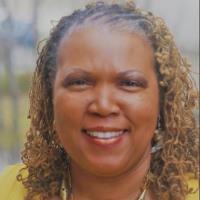Commentary on John 8:31-36
In her novel Caul Baby, Morgan Jerkins tells the story of a family’s lucrative business in selling caul. Caul is a thickened layer of skin found on babies born within an intact uterine sac. In the narrative a college student experiences an unwanted pregnancy and gives birth to a caul-bearing baby girl. With the aid of her uncle, the new mother gives her infant to this prominent but shunned caul-peddling family. All of the events occur on October 31st. The child is named “Hallow.” According to the matriarch, Hallow is to continue the caul legacy and reposition the ancestral corporation for the future.
Reformation Sunday calls to liturgical memory the significance of October 31st. Martin Luther posted the 95 Theses on the Castle Church in Wittenberg on this day in 1517. He contested the business of indulgences as sanctioned by Pope Leo X and the Catholic Church. It was the poor who had the most “skin” to lose in this ecclesial business. Indulgences offering forgiveness of sin were sold and purchased often to the financial detriment and hardship of the oppressed and marginalized. To finance St. Peter’s Basilica in Rome, the Catholic Church peddled peace in purgatory, enticing the de-centered to forsake their present homes for a future heavenly realm. Here was exploitation of social status for spiritual gain through capital means.
In the Gospel of John there is another triangulation. John 8:31-36 points to a spiritual conversation that is reimagined through a social lens, while becoming shrouded in genealogical speak. To begin, chapter 8 is a rather peculiar section in that it starts with a pericope scholars speculate was perhaps not originally included in the original text. The woman caught in adultery (verses 1-11) introduces a story that includes one of Jesus’ several “I am” or ego eimi statements (verse 12). He moves from the present to talking about his future death (verse 21).
The interlocutors in the chapter make for more intrigue. Jesus speaks to a woman, to Pharisees (verse 13), the Jews or Judeans (verse 22), and finally to “Jews who had believed in him” (verse 31). It is the dialogue with the latter where the spiritual-social-genealogical triad is more pronounced.
Before expounding on the last dialogue partner, a brief although significant treatment of “the Jews” is important. There are hints of anti-Semitism in the Gospel of John due in part to the term “the Jews” or oi ‘Ioudaioiοi. In many instances this group is a foil to Jesus and his disciples. However, as the Gospel’s context reveals an intra-Jewish conflict in the early second century CE, “the Jews” could be a reference to persons within said community who did not believe Jesus to be the messiah. Additionally, as noted in John 9, synagogue access was wedded to such belief. Thus, John records, “…they were afraid of the Jews; for the Jews had already agreed that anyone who confessed Jesus to be the Messiah would be put out of the synagogue” (verse 22). Rather than strictly interpreting oi Ioudaioi as “the Jews,” employing “the Judeans” points to the journey motif of the Gospel. Jesus makes three Passover itineraries and often travels from Galilee to Judea.
His second trip to Jerusalem is the setting for Jesus’ conversation with “Jews who had believed in him” (verse 31). Jesus offers a playbook for being his disciples, a playbook with X’s and O’s of his word and truth leading to freedom. His listeners mistake Jesus’ proffering spiritual liberty for social or political manumission.
Oddly and wrongly enough the new believers contend that as Abraham’s seed they have never been slaves. It seems that they have forgotten they are not only descendants of Abraham, but also of his son, Isaac, grandson, Jacob and his great-grandson, Joseph, who ends up in Egypt. It is in Egypt that the Israelites were enslaved. Nevertheless these interlocutors contend that their genealogical stance does not warrant the need for any social deliverance. They are missing the spiritual, or rather, eternal point.
To press the concept of spiritual freedom through his word, Jesus lifts a sociological example of the rights of the son of the house versus those of the slave of the house. Using a pun, Jesus reveals that the son/Son can set the believer, progeny of Abraham or not, free. To usurp their ancestral claim, Jesus purports the believers should do what his Father has told them to do (verse 38).
In Caul Baby, Hallow reframes the family caul business. Initially she does what the matriarch tells her to do. Yet in the end, she decides her task is otherwise: she is to reimagine what it means to have skin in the game. Hers is the opportunity to reform what it means to sacrifice Black women’s bodies for another’s good.
Reformation Sunday reminds the Church of Luther’s efforts in reforming ecclesial duty and responsibility. This day calls to remembrance the cost the poor have paid, the cost of their financial skin, at the hands of material greed and for the sake of eternal solace.
May we come to know the truth so the truth will make us free.


October 31, 2021